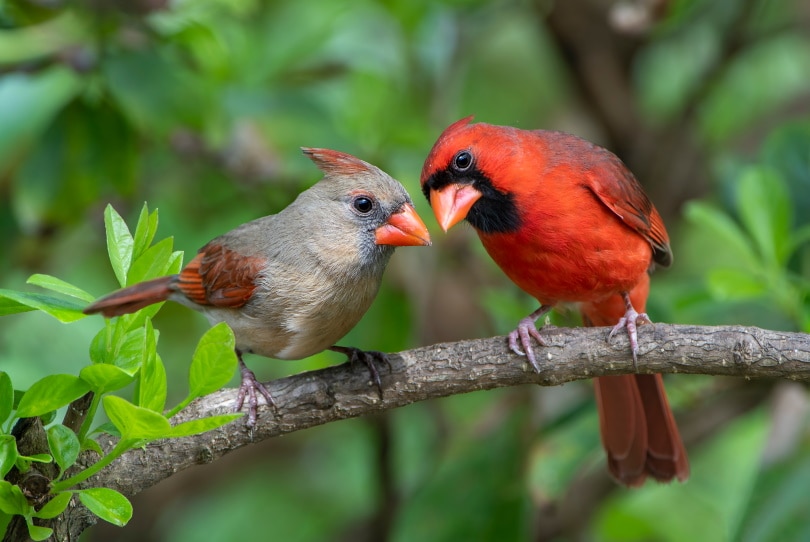Do Birds Have a Sense of Smell? What You Need to Know!
Last Updated on

Birds are lively animals that fly about to get from one place to another, to find food, and to keep an eye out for predators, among other things. However, do birds utilize a sense of smell to find their food and seek out other important things in the wild? This is a question that does not have a yes or no answer. Here is what you should know about a bird’s sense of smell.

What’s the Deal With a Bird’s Sense of Smell?
The truth is that there is no consensus within the veterinarian or scientific community as to whether birds have a sense of smell. What can be observed in nature are really the only clues that we have as to whether these animals use smell as part of their daily tasks and experiences. We never see birds use their bills to sniff the air. Also, noses are not a prominent part of a bird’s anatomy.
However, it is well-known that birds have an excellent sense of sight and touch, which is highly utilized when hunting for food. In addition, smells don’t travel quickly through the air, so smell would not serve an active bird well. Therefore, we can gather that a bird uses its sight rather than smell when navigating the world.

Do Birds Have a Sense of Taste?
Since birds eat, they must have a sense of taste, right? It’s true that birds have almost 50 tastebuds but compared to the more than 9,000 tastebuds that we humans have, they don’t get all the nuances of flavor in each bite that they take. The tastebuds that birds do have help them to determine whether a seed or grass is edible or toxic. When it comes to flavor enjoyment, birds do not seem to be interested. So, birds do have some sense of taste but mostly for survival reasons.
How Do Birds Get Along in the Wild?
If birds do not utilize a sense of smell or taste in the wild, how do they survive? First and foremost, they utilize their eyesight. They can see much better than we can. They can spot a small seed from several yards away while in flight. They can also use their eyesight to spot possible predators before landing for a meal or a nap.
Birds also have an excellent sense of touch. They can tell when they come into contact with a nut, seed, or grass that they can eat and when they come into contact with poisonous plants or possible predators. Also, birds utilize their hearing to determine what is creeping around in the trees and bushes. Their eyesight, touch, and hearing are what keep them alive in the wild.

You might also be interested in: Are Owls Smart? Here’s What Science Tells Us

Conclusion
Wild birds do not require a sense of smell or taste to survive. Actually, it seems that they require neither of those senses to enjoy their lives. A great sense of hearing, an awesome sense of sight, and a keen sense of touch seem to be all a bird needs to thrive in the wild.
Featured Image Credit: Bonnie Taylor Barry, Shutterstock
About the Author Rachael Gerkensmeyer
Since 2000, Rachael has been a freelance writer, and has had an opportunity to research and write about many different topics while working to master the art of fusing high-quality content with effective content marketing strategies. She is an artist at heart and loves to read, paint, and make jewelry in her spare time. Rachael is obsessed with helping animals in need both in her community and anywhere in the world where she feels she can make a difference. She lives off the grid in Hawaii with her husband, her garden, and her rescue animals including 5 dogs, a cat, a goat, and dozens of chickens, so it's no surprise that animals happen to be her favorite topic to write about!
Related Articles:
How to Clean a Refractor Telescope: Step-by-Step Guide
How to Clean a Telescope Eyepiece: Step-by-Step Guide
How to Clean a Rifle Scope: 8 Expert Tips
Monocular vs Telescope: Differences Explained (With Pictures)
What Is a Monocular Used For? 8 Common Functions
How to Clean a Telescope Mirror: 8 Expert Tips
Brightfield vs Phase Contrast Microscopy: The Differences Explained
SkyCamHD Drone Review: Pros, Cons, FAQ, & Verdict
